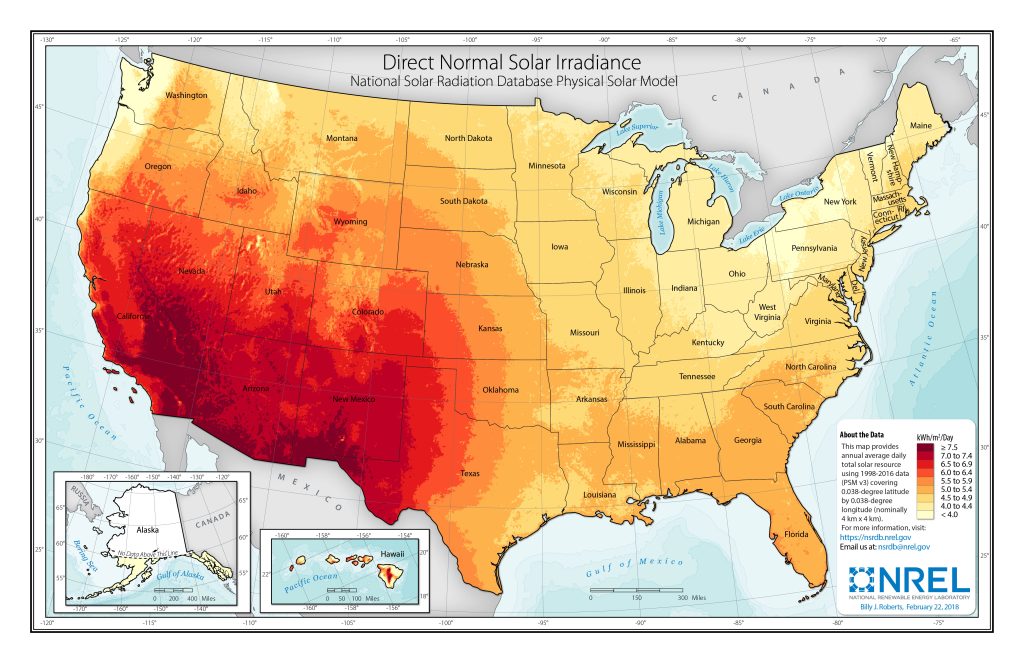Are you considering installing solar panels on your Maine home? It’s a big investment but could also save you a lot of money in the long run. But is it really worth it?
Whether or not solar panels are worth it in Maine depends on your individual situation.
Your home’s location, orientation, and shading will impact how much electricity your solar panel system produces.
In this article, we’ll take a look at some of the factors you should consider when deciding whether or not to install solar panels in Maine. We’ll also provide some tips on how to get the most out of your investment.
Table of Contents
Are Solar Panels Worth It In Maine?
Installing solar panels in Maine can be a great investment. Solar panels can help you save money on your electric bill, and they can also increase the value of your home.
There are a few things you should consider before you install solar panels, such as the cost of the installation, the size of your home, and the amount of sun your property receives.
The cost of solar panels has decreased significantly in recent years, making them more affordable than ever. The average cost of a solar panel installation is around $16,000.
However, the cost of solar panels can vary depending on the size of your home and the amount of sun your property receives. Additionally, the cost of installing solar panels may be eligible for state and federal tax credits.
According to the National Renewable Energy Laboratory, Maine has an average annual solar radiation of 4.5 kWh/m2/day. This is lower than in some other states, but it’s still enough to make solar panels a viable option. In fact, Maine ranks in the top half of states for potential solar energy production.

Of course, the initial cost of solar panels can be prohibitive for some people. But there are ways to offset this cost. For example, many utility companies offer discounts or rebates for customers who install solar panels.
There are also federal and state tax credits available for those who go solar. When you factor in these incentives, the payback period for solar panels in Maine is reduced significantly.
So are solar panels worth it in Maine? Absolutely! With generous tax incentives and a good amount of annual sun exposure, going solar is a smart choice for homeowners in Pine Tree State.
Understanding The Climate In Maine
The climate in Maine is perfect for generating solar energy, and the state offers a number of incentives to encourage homeowners to install solar panels.
If you’re considering installing solar panels in Maine, it’s important to understand the climate and how it affects solar power production.
Sunlight is the best source of energy for solar panels. In Maine, the sun shines an average of 4.5 hours per day. (peak sun hours) This means that there is plenty of opportunity for your solar panels to generate electricity.
Solar panels also produce electricity based on how much sunlight they receive. In Maine, the average daily sunshine is about 4.5 hours. This means that your solar panels will produce more electricity on average than they would in a state with less sunlight.
Snow can cover your solar panels and reduce their efficiency. In states with less snow, such as Arizona or California, homeowners don’t have to worry about this as much.
However, in Maine, you will need to take steps to keep the snow from accumulating on your panels. One way to do this is by installing a snow retention system. This is a frame that sits on top of your solar panels and helps to keep the snow from building up.
Another way to keep the snow from accumulating on your solar panels is by keeping them clean. When the snow melts, it can wash away the dirt and dust that has accumulated on your panels. You can clean your panels yourself or hire a professional to do it for you.
Overall, the climate in Maine is great for solar power. The sun shines an average of 4.5 hours per day, and the average annual snowfall is 108 inches. This means that if you live in Maine, you can take advantage of the many incentives offered by the state and increase the value of your home with a solar panel installation.
How Many Peak Sun Hours Does Maine Recieve?
Peak sun hours are the hours during the day when the sun is high in the sky and its rays are the most direct. The more peak sun hours a location receives, the more sunlight there is available for solar panels to convert into electricity.
Maine receives an average of 4.5 peak sun hours per day.
However, there can be considerable variation from one location to another and from one day to the next. For example, areas that are closer to the coast tend to receive less sunlight than inland areas.
Trees, buildings, and other objects that cast shadows affect the direct sunlight too.
Despite the possible variations, 4.5 peak sun hours is enough for solar panels to generate a significant amount of electricity in Maine. In fact, if you have a typical home and install a 6 kW solar panel system, it will produce about 27 kWh of electricity per day during peak sun hours. That is more than enough to offset your home’s energy usage.
And since the average commercial electricity rate in Maine is 18% higher than the national average, you can expect your payback period to be shorter than in many other states.
What To Look Out For When Considering Solar In Maine?
Before you install solar panels, there are a few things you need to consider.
- You need to determine if your home gets enough sun exposure. Solar panels need direct sunlight to work effectively, so homes in shady areas are not good candidates for solar.
- You need to consider the cost of installation and maintenance. Solar panels are a significant investment, so you need to make sure you can afford the upfront cost.
- Check with your local utility company to see if there are any restrictions or incentives for installing solar panels. With these factors in mind, you can decide if solar is right for your home in Maine.
How Many Solar Panels Would You Need In Maine?
The answer to this question depends on a number of factors, including the size of your home, your energy consumption, and the amount of sunlight you receive.
We estimate that between eight and twelve solar panels would generate enough electricity to power a typical home in Maine.
Let’s take a look at an example calculation to determine the number of solar panels you would need for a home in Maine.
Step 1: Determine Your Average Annual Energy Usage
There are a few different ways to calculate your home’s average energy requirements, but the most accurate method is to use your past energy bills.
Pull up your last 12 months of electric bills and take the total kilowatt-hours used. Now divide that number by 12 to find your monthly average. For example, if your past 12 months of bills totaled 1,200 kWh used, then your monthly average would be 100 kWh.
For our example let’s consider 570 kWh as the average monthly energy consumption for a home in Maine.
Daily Energy Usage = 570 kWh / 30 days = 19 kWh Hourly Energy Usage = 19 kWh / 24 = 0.79 kWh per hour
Step 2: Determine The Amount Of Peak Sunlight You Receive
From our information above we found that Maine has an average of 4.5 peak sun hours per day.
Step 3: Choose Your Solar Brand
Solar panel efficiency is affected by the angle of the sun, weather conditions, and the type of solar panel. In Maine, the angle of the sun is lower than in other parts of the country, which means that solar panels are not as effective in generating power.
However, this can be offset by choosing a panel with a high-efficiency rating. Weather conditions such as clouds and shade can also affect solar panel efficiency.
For our example, we chose the SunPower (370W) panel which is regarded as one of the most efficient solar panels on the market.
Step 4: Calculate The Number Of Solar Panels
Multiply the hourly usage calculated in Step 1 by 1,000 to convert your hourly consumption to watts. Then divide the hourly wattage by the daily peak sun hours for Maine and multiply the answer by 24.
Hourly Wattage = [(0.79 kWh x 1000) / 4.5] x 24 = 4213.33 W
To determine the number of solar panels you need to divide your home hourly wattage by the solar panel wattage.
Number Of Solar Panels = 4213.33 W / 370 W = 11.38 = 12 panels
The average home in Maine will thus need 12 SunPower (370 W) panels.
Will Solar Panels Increase Home Value In Maine?
The answer depends on a number of factors, including the cost of installation, the amount of sun exposure, and the current value of your home. Solar panels typically last between 20 to 30 years, so they can be a wise investment if you plan to stay in your home for the long term.
Solar panels will increase home value, although this increase is often offset by the cost of installation. In Maine, where sun exposure is somewhat limited, solar panels may not produce as much power as they would in a sunnier climate, say in California. However, they can still help to lower energy bills and reduce your carbon footprint.
A study by Zillow found that homes with solar panels sell for an average of 4.1% more than homes without solar panels.
Therefore, if your home was valued at $550,000 and you installed a solar system, you could expect your home’s value to increase by $22,550.
Final Thoughts
Solar panels are a wise investment for homeowners in Maine who are looking to reduce energy costs and have a smaller environmental impact. Although the initial cost of installation can be high, solar panels can save you money over time and increase the value of your home.
With sun exposure limited in Maine, it is important to choose a high-efficiency solar panel to maximize power production.
Ultimately, the decision of whether or not to install solar panels is a personal one, but with costs falling and incentives increasing, now is a good time to explore the possibility of going solar in Maine.

